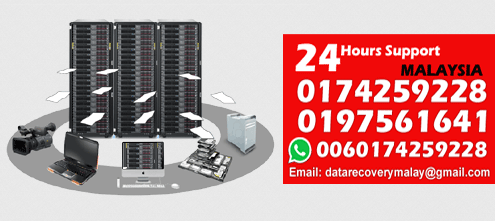Data Backup Services - Kuala Lumpur (KL)
KL SECURE DATA PROTECTION AND BACKUP COMPANYSmart Data Recovery Kuala Lumpur is one of the World leading data backup Services specialists in Malaysia. Our main aim is 100% secure from ransomware attack and disaster. We can backup the Files securely, We continually improve our service and technology. Private company and Enterprices lose valuable data because of viruses, hardware failure, theft or other issues. You can safe the data 100% Secure and guarantee with smart data recovery kuala lumpur. The only one ransomware prevention and disaster rescue company in kuala lumpur malaysia

WHY? THE DATA BACKUP AND PROTECTION IMPORTANT!:
In an increasingly digitized business landscape, data backup is vital for the survival of an organization. You can get hacked or ransomed, and lose your data to thieves who’ll sell your trade secrets to the highest bidder. Injected malware can corrupt your hard-earned information. Disgruntled employees or other insider threats can delete your valuable digital assets. Can you recover from data loss? Data backup is a practice that combines techniques and solutions for efficient and cost-effective backup. Your data is copied to one or more locations, at pre-determined frequencies, and at different capacities. You can set up a flexible data backup operation, using your own architecture, or make use of available Backup as a Service solutions, mixing them up with local storage. Today, there are plenty of corporate storage TCO solutions to help you calculate costs, avoid data loss, and prevent data breaches.
BACKUP AND DATA SECURITY:
Secure Backup From Ransomware
Onsite Data Backup Solutions
24/7 Monitor The Progress
Auto Encryption
Data Backup Zero Time For Restoration
Data Backup All Over Kuala Lumpur
Incremental Updated Backup
Backup administrator
Backup scope and schedule
Recovery Point Objective
Cost of downtime
Cloud Backup Services
HOW WE SECURE DATA?:
Support for diverse file types—should not include any file types. In particular, solutions should support documents, spreadsheets, media, and configuration files. Backup location—you should be able to specify backup locations. The solution should support backup to a variety of locations and media, including on and off-site resources. Scheduling and automation—in addition to enabling manual backups, solutions should support backup automation through scheduling. This helps ensure that you always have a recent backup and that backups are created in a consistent manner. Backup management—you should be able to manage the lifecycle of backups, including number stored and length of time kept. Ideally, solutions also enable easy export of backups for transfer to external resources or for use in migration. Partition selection—partitions are isolated segments of a storage resource and are often used to separate data within a system. Solutions should enable you to independently backup data and restore partitions. Data compression—to minimize the storage needed for numerous backups, solutions should compress backup data. This compression needs to be lossless and maintain the integrity of all data. Backup type selection—you should be able to create a variety of backup types, including full, differential, and incremental backups. Differential backups create a backup of changes since the last full backup while incremental records the changes since the last incremental backup. These types can help you reduce the size of your backups and speed backup time. Scaling—backup abilities should not be limited by the volume of data on your servers. Solutions should scale as your data does and support backups of any size.